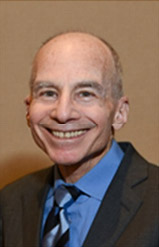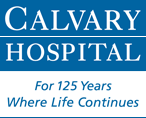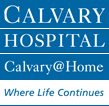Why Palliative Care Should Be a Basic Human Right
Death and suffering are an inevitable part of the shared human experience. The desire for dignity, regardless of one’s socioeconomic status, is a common need. Palliative care, when delivered quickly and correctly, can ensure that people receive the comfort and support they need to maintain dignity at the end of life.
An estimated 40 million people are in need of palliative care annually, with almost eight out of ten living in low- or middle-income countries. Yet, only about 14% of those who need it receive it, according to The Open Society Public Health Program 1. Those numbers are staggering. Substitute any other disease or illness for the world’s lack of palliative care and it would represent a public health crisis. Just as healthcare providers would never turn their back on someone showing up to an emergency room seeking care, the medical community should not turn its back on those in need of support at the end of life.

Palliative care treats “total pain,” as defined by the National Institutes of Health. This is often understood as “the sum of the patient’s physical, psychological, social, and spiritual pain.” Palliative care focuses on the person behind the illness rather than solely on the illness itself. Treating for total pain helps lower stress and discomfort more comprehensively, providing patients with an opportunity for a better end to their lives.
In 2017, Dr. Lawrence O. Gostin published the first of several articles about palliative care. He posed very simple, yet complex, questions: “Wouldn’t it be fitting if America had a truly great health system, with humane care throughout the lifespan? In the world’s richest country, is it too much to ask that we treat everyone when they are sick, care for them when they are suffering, and allow them to die humanely and with dignity when the journey is over?”
At a Calvary Hospital event, “Making Palliative Care a Global Public Health Imperative,” Dr. Gostin stated that palliative care represents the “restoration of dignity in the face of hopelessness.” To an audience comprised of healthcare professionals from across the greater New York area, Dr. Gostin shared the compelling story of his 102-year-old father’s experience with palliative care shortly before he died.
His father wanted to have a “good” death. By getting his father admitted to Calvary Hospital, Dr. Gostin was able to reassure – and ensure – that his father would indeed be able to die as he wished.

Dr. Gostin spoke about the importance of “healthy living, aging, and dying” in today’s society and what constitutes a “good death.”
“The concept of a healthcare system’s ability to give each patient a ‘good death,’ speaks to the idea of treating the person behind the illness as opposed to strictly treating the illness itself. Managing a patient’s symptoms are an important part of palliative care, but even more crucial is providing support for the person behind the illness.
“The idea of ‘healthy dying’ sounds like a contradiction, but it’s not. Imagine if we could live our lives knowing that as we age, and then through life’s end, it would be like it was for my father. We could then live each day to the fullest our capacities allow. And if we lived in a society that embeds palliative care throughout the life course, we would be enveloped with love, compassion, and tender care in all our years, right through to the final moment.
“We need to reimagine palliation, embracing the communal or relational ethics of caring for the whole person, and embedding it in families and communities. Genuine palliation must be embedded throughout the health and social system. Wherever possible, personal and social care should come to where the person yearns to be – in his or her home and with his or her family.”
Despite the many positive benefits of palliative care, a negative stigma continues to surround this topic due, in large part, to a lack of knowledge A recent study from The American Journal of Medicine2 found that many individuals associate palliative care with treatment of symptoms but “were unaware that it included psychosocial and spiritual support, bereavement services, support for family and caregivers, and the affirmation of life.”
The way to reverse this stigma is by raising awareness through education. The data overwhelmingly shows the benefits of palliative care. Studies have shown it can improve patient functioning. It improves quality of life and lowers depression. The benefits also extend to family, friends, and caregivers.
Calvary Hospital, where Dr. Gostin’s father spent his last few weeks of life, is a strong advocate for palliative care. He believes it is a basic human right and should become a global health imperative.
As the country’s only fully accredited acute care specialty hospital exclusively providing hospice and palliative care, Calvary treats the medical, emotional, and spiritual needs of our patients and their families. We call it CalvaryCare®. We’d like to do our part to help educate and enlighten as many people as possible on this overwhelmingly positive practice to help patients experience the “good death” every human being deserves.
Learn more about CalvaryCare®, our hospital, and the importance of hospice and palliative care at www.calvaryhospital.org.
1 https://www.opensocietyfoundations.org.
2 https://www.amjmed.com/article/S0002-9343(18)30756-3/fulltext.
Categories
Archives
- April 2025
- March 2025
- February 2025
- October 2024
- August 2024
- July 2024
- May 2024
- April 2024
- March 2024
- February 2024
- December 2023
- November 2023
- October 2023
- August 2023
- July 2023
- June 2023
- May 2023
- April 2023
- March 2023
- January 2023
- December 2022
- October 2022
- August 2022
- July 2022
- June 2022
- April 2022
- March 2022
- February 2022
- January 2022
- October 2021
- September 2021
- August 2021
- July 2021
- June 2021
- May 2021
- April 2021
- March 2021
- February 2021
- December 2020
- November 2020
- October 2020
- September 2020
- August 2020
- July 2020
- May 2020
- April 2020
- March 2020
- February 2020
- January 2020
- December 2019
- November 2019
- October 2019
- September 2019
- August 2019
- July 2019
- May 2019
- April 2019
- March 2019
- February 2019
- January 2019
- December 2018
- November 2018
- October 2018
- September 2018
- August 2018
- July 2018
- June 2018
- May 2018
- April 2018
- December 2017
- November 2017
- October 2017
- September 2017
- August 2017
- July 2017
- June 2017
- May 2017
- April 2017
- April 2012

